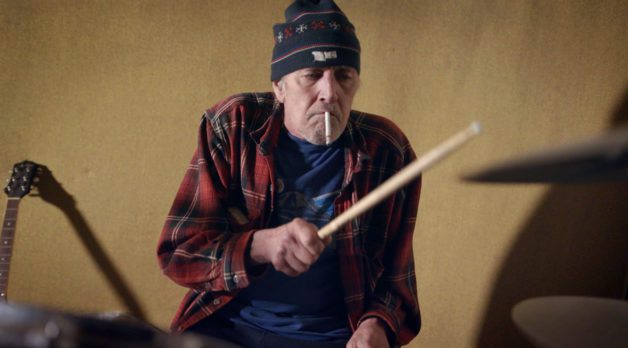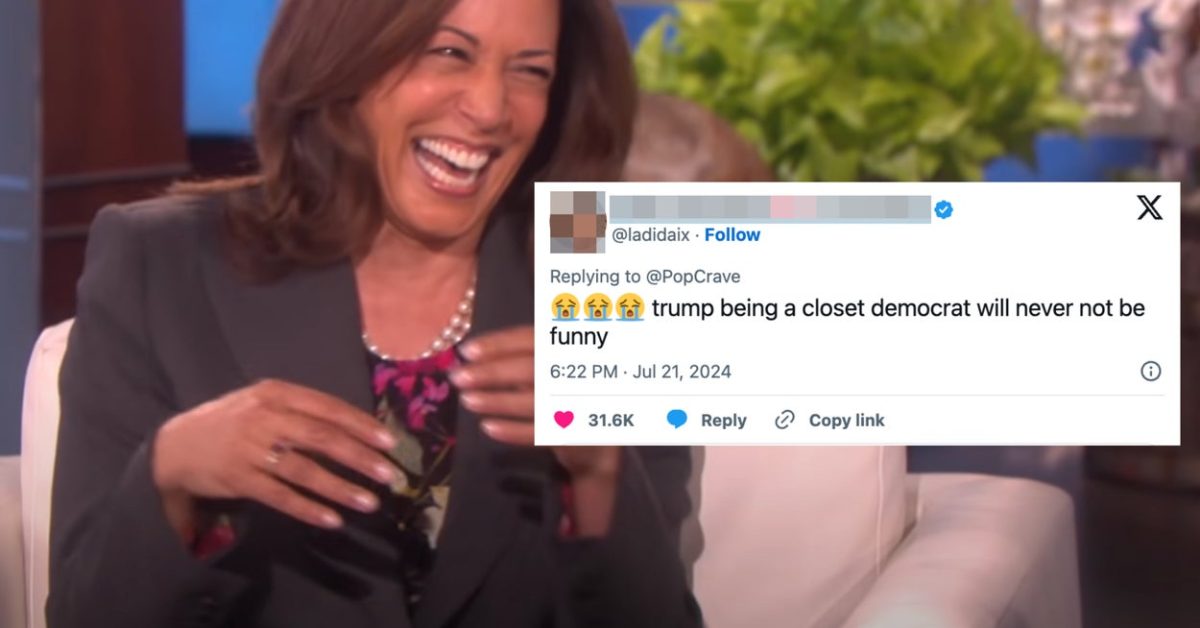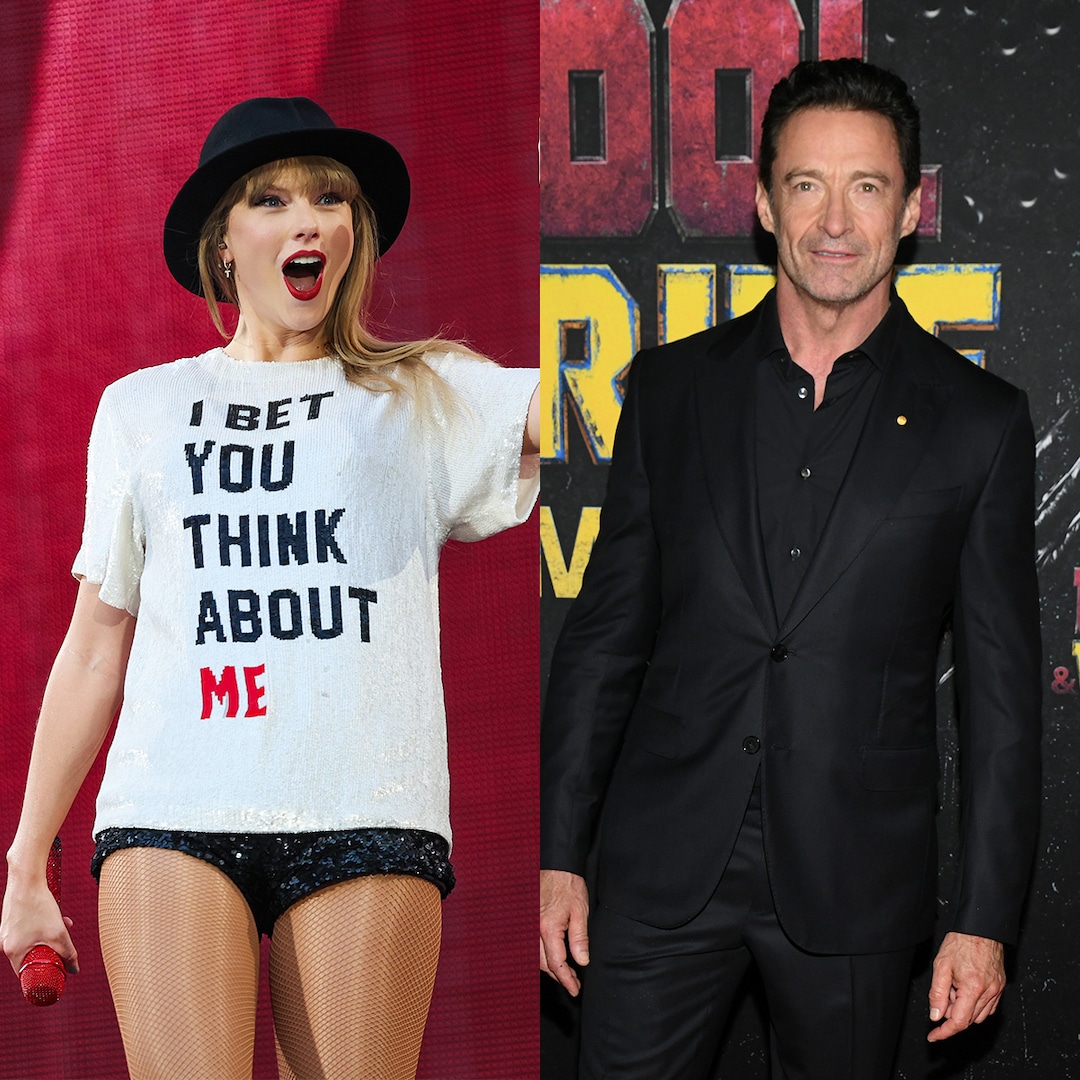
“Never Delete Your Old Footage”: Jed I. Rosenberg on Pavement Documentary Louder Than You Think
Mar 11, 2023
Gary Young in Louder Than You Think
When it comes to music documentaries, the bar is low—some new footage, a long-unseen live performance, maybe a fresh anecdote or two—and yet rarely cleared. For Pavement fans, though, Louder Than You Think will be essential viewing. The trim 90 minutes tell the story of the band’s original drummer, Gary Young, also the engineer of their first sessions at the Stockton, California record studio from which the film gets its name. It’s no secret that Young was essentially kicked out of the band for his heavy drinking habit, which is still on full display in this film; throughout his interviews, Young sips on an unholy amount of orange-soda-and-vodka, the two bottles always side by side. But rock alcoholics aren’t uncommon, and what made Young’s brief tenure in the band special is made clear via carefully edited concert clips, scans of long-forgotten zines, TV interviews with the group and even home movies provided by the band itself, whose members are themselves freshly interviewed. (Scott Kannberg, aka Spiral Stairs, is an executive producer.)
Louder Thank You Think premieres at SXSW 2023 this coming Monday. Via email, I asked Rosenberg about what it took to pull his first feature together, the archival digging process and how the film arrived at puppetry sequences to provide visuals to go with its talking heads.
Filmmaker: Pavement is on its second reunion tour, made a new video with Alex Ross Perry and is now working on a new film with him, and is generally an active band. The credits, with two of the three producers having Stockton roots, seem to point to a project that originated with them before the band got involved. Obviously, getting Pavement’s approval so that you could license their music was crucial, and I’m assuming this helped keep that cost reasonable. What was the timeline like on that?
Rosenberg: That’s correct. Two of the producers, Jeffrey Clark and Brian Thalken, were part of the punk music scene in 1980s Stockton. Brian was a member of the Authorities, Fall of Christianity and Death’s Ugly Head. Jeff was in the Mixers, Torn Boys and several other local bands. They also spent a considerable amount of time hanging with an older hippie drummer guy named Gary Young—a drunken, weirdo drug dealer who seemed destined to be another stagnant acid casualty.
Fast forward to 1992/1993. Jeff was in London and saw a copy of NME (or maybe Melody Maker?) on a newsstand kiosk. Wait: was that Gary Young on the cover? Jeff did a double, maybe a triple take. How in the fuck could that be possible? It turned out—in the most unlikely circumstance imaginable—Gary randomly linked up with two 20-year-old Stockton musicians and their enigmatic lo-fi band hit it big.
That was the genesis of this film. How did someone like Gary find his way into alt-rock superstardom? Jeff kept the idea in the back of his head for years. He even shot for a few days with Gary in 2007 to test the waters. You can actually see some of that footage in our film. The DP of that initial shoot, David Nicholson, is a good friend of mine. We’ve worked together countless times, so when Jeff decided to resurrect the idea in 2019 (alongside his old buddy, Brian Thalken), David (also the DP of the newly resurrected film) called me to see if I’d like to direct. It was an extremely easy question to answer.
In terms of access, Jeff and Brian knew Stephen Malkmus and Spiral Stairs before Pavement was even formed. So, those Stockton roots were crucial in securing trust and participation with the band. I’ll add that every member of Pavement, as well as Chris Lombardi at Matador, have been very generous with their time and participation in our three-and-a-half year journey to get the film made. Spiral in particular lent invaluable support to us at every step, provided never-before-seen footage from Pavement’s early days, and ended up joining us as an executive producer.
Filmmaker: A lot of musical documentaries fail to clear the relatively low bar of giving fans what they want in terms of new footage or stories. In Gary’s case, there are obviously a ton of interviews in the archive, some of which are quickly findable online, like his not-so-long-ago Vice interview. How did you decide what to focus on and what to exclude narratively, especially in terms of presenting new footage for the superfans while making sure less-informed viewers were up to speed?
Rosenberg: I agree with your premise that many music docs lack sufficient new material to appease the fans. That being said, we have so much original material and never-before-seen archival that I can’t imagine we’re going to disappoint even the hardcore-iest of the hardcore Pavement fanatics. As far as what to include, our approach began with the question Jeff posed from the beginning (how did Gary end up on the cover of NME?), then we worked backwards to explore that particular throughline. Once we built a general story arc from that slice of Gary’s life, we whittled it down until it took a finer shape. Most of our newly dug up archival fit perfectly into this narrative, so we didn’t have a whole lot of tough decisions around discarding valuable archival.
Filmmaker: One of the pleasures of making a documentary like this is getting an excuse to crowdsource for previously unseen footage. You went on Reddit to ask for “Pavement performance or interview footage during Gary’s tenure (1989 – 1993),” “Photos of Pavement during this era” and “Fanzines or magazines that covered Pavement’s early years.” The performance footage is obviously especially key. How many people did you end up hearing from, how much of that footage was usable and what was the ingestion and assembly process like? Are their best practices at this point for crowdsourcing footage?
Rosenberg: You’re a psycho for finding my Reddit posts. I tip my fedora, but I’m slightly disappointed you didn’t find all the comments I left on random Pavement YouTube videos asking where I could find the original footage. So yes, I spent a considerable amount of time trying to find fans on the internet who had photos and videos of Gary/Pavement from that era, although I don’t think I had a single bit of success in that pursuit. However, one of the stranger victories occurred after messaging a seller on eBay who was getting rid of two music magazines (called Fiz) that featured Pavement on the cover. I wanted to see if there were more where those came from. It turned out that she (Cathy Rundell) wrote the Pavement pieces for Fiz and enthusiastically sent the issues to me for free because she wanted to help our cause. That was cool.
Filmmaker: Relatedly, where did the mid-’00s interview footage come from? It seems like this is maybe not the first time someone attempted to make a project like this.
Rosenberg: Jeff and a few others made an attempt to produce a short documentary about Gary in 2007, but abandoned the project after a few days of shooting. Luckily, the footage was pretty great, so we used it. A good lesson here is never delete your old footage, even if you think the project is dead, because you never know…
Filmmaker: How many shooting days and/or sessions did you end up having with Gary, what was your strategy coming in for capturing information you needed and how did you adapt that as you went along?
Rosenberg: We filmed with Gary for ten days or so. As a subject, he was unpredictable because of his “orange soda” diet, so we just did our best to go with the flow. David and I both filmed everything handheld to be more mobile. I had a lot of story beats in my head that I wanted to cover, but we just had to get what we got at the pace that Gary was willing to go. I did my best to steer him, but sometimes Gary would end up rambling about his theories on how to best name your pet dog or reminisce about the competitions he won as a teenage gymnast at the YMCA in Mamaroneck. Sometimes that stuff made it in, most of it didn’t. Ultimately, I think the looseness in our shooting style was a positive contributor in our depiction of Gary.
I’ll add that I very much cherish the time I spent with Gary and his wife, Geri. They were gracious hosts and I even slept over one night in the guest room. It was a lovely time, although I think I still smell like dog and cigarettes.
Filmmaker: In the press kit, director of puppetry Adrian Rose Leonard attributes the idea of using puppetry to producer Jeffrey Lewis Clark. To the extent that the puppet footage helps provide something to look at during what would otherwise be talking-head footage, was there any discussion about trying another, potentially more cost-effective method, such as more generic archival footage?
Rosenberg: Yes, absolutely. I originally had an idea that we could film Gary drawing little rudimentary pictures with crayons and markers, then use those drawings to enter a crude animation world in lieu of reenactments. I wanted him to draw pictures during his master interview (where he’s sitting at a desk in his living room), but when I asked him to draw stuff—himself, Geri, Malkmus, drums, cops, etc.—he didn’t follow the prompts at all, so we had to quickly abandon the idea. But if you look closely at that interview, you can see all the markers and papers in front of him, ready for drawing. Without any context, that set up is random as hell, but I still think it looks kinda cool. There were a couple of other ideas for animation, but Jeff’s puppet revelation was immediately the grand prize winner. Additionally, I filmed a lot of little “reenactment” moments on an old miniDV camera I’ve had since like 2001. Most of the “archival” stuff of Gary’s studio, random shots of Stockton and Chris Lombardi opening the Slanted package were just me and a shitty SD cam.
Publisher: Source link
Lamorne Morris Thinks Kamala Harris Has This Advantage Over Donald Trump
Trump said that President Joe Biden, who dropped out of the race on Sunday while recovering from COVID-19, never really had the infection. “Really? Trump thinks Biden never had COVID?” Morris said on Monday. “You don’t pretend to have COVID to get out…
Jul 26, 2024
Khloe Kardashian Is Ranked No. 7 in the World for Aging Slowly
Khloe Kardashian's body is out for more than just revenge. In fact, the 40-year-old is one of the world's slowest agers—a revelation she learned after taking a blood test to determine her body's biological age compared to her calendar age.…
Jul 26, 2024
Reactions To Trump’s Kamala Harris Donation
Just as many white Americans used their Obama vote to excuse their internalized racism, Lauren Boebert seems to have adopted this same ideology, ignoring Trump's long record of racism against African Americans, Mexicans, Hispanics, Native Americans, Muslims, Jews, and immigrants, and discrimination against women and…
Jul 25, 2024
Hugh Jackman Reveals What an NFL Game With Taylor Swift Is Really Like
Hugh Jackman is happy to fill any blank space in Taylor Swift’s NFL game suite. In fact, the Deadpool & Wolverine star recently detailed his experience attending a Kansas City Chiefs game to root on Travis Kelce, alongside Ryan Reynolds,…
Jul 25, 2024











